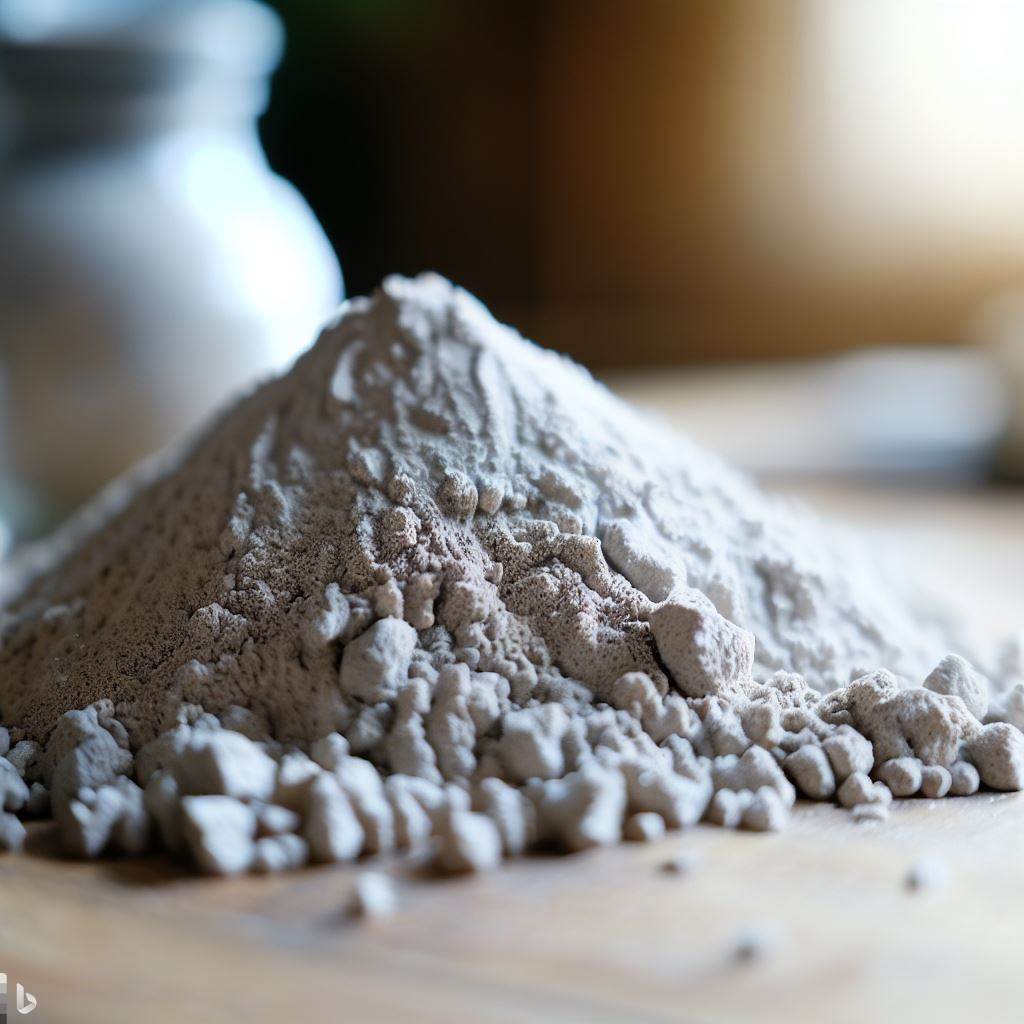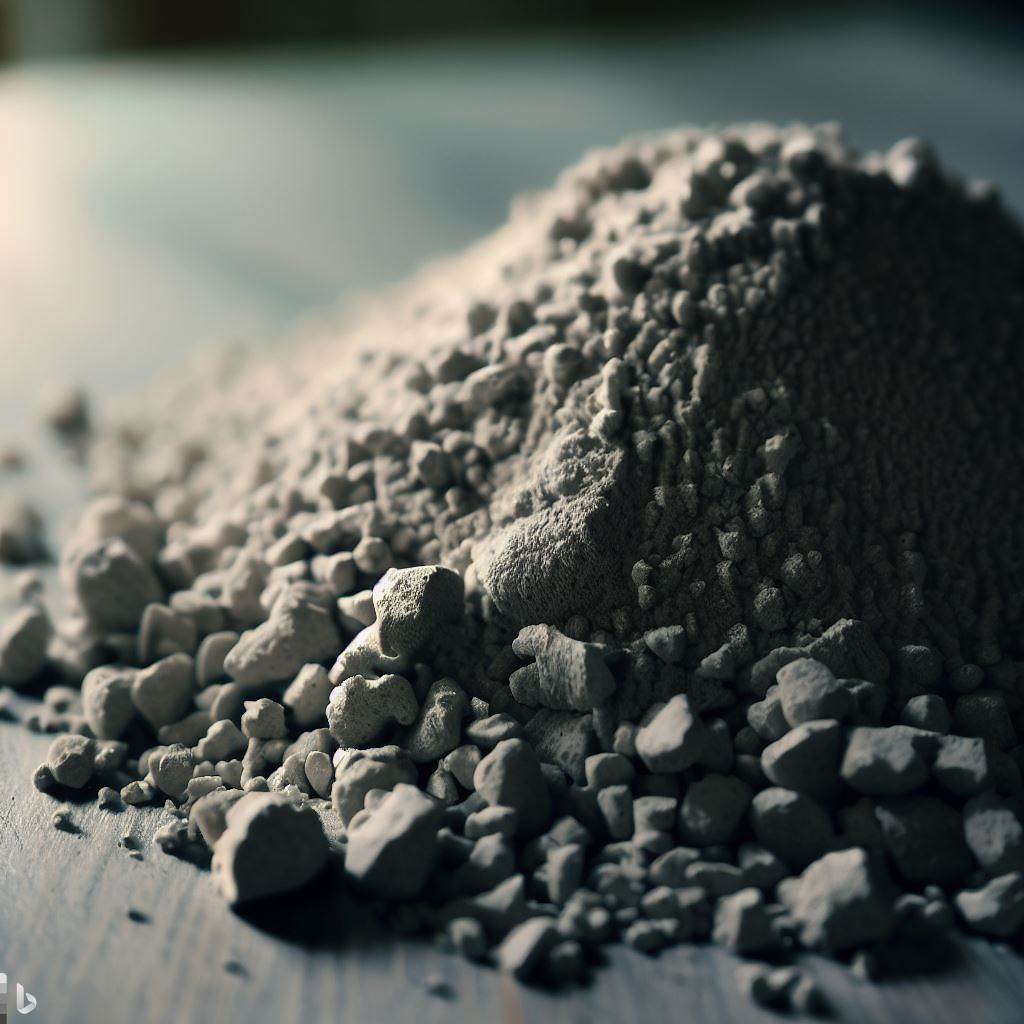Zeolite: A Natural Remedy with Potential Benefits?

After having worked in integrative medicine for years, I’ve noticed how trends and fads cycle through the field. One of the health trends that has recently gained popularity is the recommendation for zeolite. Zeolite is a powder derived from clinoptilolite, a type of volcanic rock composed of silica and aluminum-based crystals that can act through strong adsorptive or binding properties. As such, zeolite is typically touted for detox as a way to bind to toxic substances in the digestive tract and carry them out of the body.
While companies often claim zeolite is “generally recognized as safe” (GRAS) by the U.S. Food and Drug Association, no form of zeolite has been approved as GRAS for human consumption. The only GRAS approval of zeolite is for up to 1% use in animal feed (FDA 2019).
Potential Uses
As a supplement, the research is beginning to suggest that zeolite may have some valid uses: as a treatment for toxin exposure, for improving immune function, for decreasing cholesterol and for treating gastrointestinal conditions.
Zeolite for Protection from Toxins
Most of the studies on zeolite are in farm animals, although there is some human data as well. Initial studies in chickens found that zeolite was effective for protecting the birds from aflatoxin. Aflatoxin is one of the most potent cancer-causing liver toxins known to man (Li 2022). It is produced by fungal growth on grains and other food sources.
In chickens, aflatoxin causes a decrease in growth rate and poor performance. A study on aflatoxin-contaminated chicken feed combined with or without zeolite found benefits (Oguz 2000). In chickens fed aflatoxin at 50 parts per billion, the combination with zeolite protected the chicks from toxic effects. As aflatoxin levels increased however, zeolite became less effective. At 100 parts per billion of aflatoxin, zeolite provided only modest benefits.
Lead is a toxic heavy metal often found in small quantities in the environment. A study in humans looked at the intestinal absorption of lead with and without supplemental zeolite. In the trial, individuals were given a very small dose of lead in water combined with zeolite or placebo. In subjects taking zeolite, lead absorption was decreased by 90% (Samekova 2021).
Chemotherapy is a form of cancer treatment that uses substances that are toxic to fast growing cells like cancer. Unfortunately, there is typically spillover from the therapy, as other healthy cells are also affected. One of the side effects from chemotherapy can be nerve damage, or peripheral neuropathy, with loss of sensation and nerve pain in the hands or feet. In a study on chemotherapy treated cancer patients, zeolite improved the tolerability of chemotherapy treatment, allowing for more rounds of chemotherapy. There were fewer cases of neuropathy in patients on zeolite, but the findings were only significant in male patients (Vitale 2020).
Zeolite and Immune Function
In chickens, zeolite has been shown to potentially enhance immune function. In supplemented chickens, immune signaling compounds were higher and intestinal barrier function or “leaky gut” was improved (Dunislawaska 2022). A separate study also found improved immune function with decreased infections in chickens supplemented with zeolite (Gradzki 2020). Other research in chickens also verifies the improvements on intestinal barrier function with zeolite supplementation (Wu 2013).
Initial data suggests that zeolite may have effects on the human immune system as well. In Germany, a clinical trial of patients with immunodeficiency found benefits. The patients were supplemented with zeolite in combination with a small amount of another mineral powder, dolomite. In the treated subjects, there were significant changes in a number of different types of white blood cells, including B lymphocytes, T-helper cells and activated T-lymphocytes. The changes were thought to be clinically relevant as patients reported improved wellbeing with zeolite treatment (Ivkovic 2004). However, it’s worth noting that a statistical assessment of wellbeing was absent from the published data, somewhat diminishing the findings.
Zeolite and Cholesterol

While cholesterol can be a controversial topic, when levels are too high, cholesterol clearly raises the risks for heart disease. For treating high cholesterol, medications are available, but aren’t without their own controversy. One of the simplest approaches to lowering cholesterol is to absorb it in the digestive tract. Soluble fiber works in this way to lower cholesterol levels.
Beyond soluble fiber, zeolite also appears to effectively bind cholesterol in the digestive tract leading to decreased levels. A pilot study in humans supplemented zeolite and found that a finely ground powder decreased total cholesterol and LDL (bad) cholesterol by 19% and 23% by eight weeks (Cutovic 2017). Six weeks after stopping the supplement, cholesterol levels returned to baseline showing the need for ongoing treatment.
Zeolite and Gastrointestinal Health
Another potential use of zeolite is for gastrointestinal health. A study in endurance athletes found that supplementation of zeolite improved the intestinal barrier and also modestly decreased levels of inflammation (Lamprecht 2015).
An initial pilot study of zeolite for irritable bowel syndrome found decreased inflammation and improvements in gut flora (Petkov 2021). A separate study in patients with diarrhea-type irritable bowel syndrome also found modest trends towards benefits, although the results were mostly not statistically significant (Anderle 2022).
A small trial for inflammatory bowel disease, an autoimmune condition often causing bloody diarrhea, found benefits for Crohn’s disease. In Crohn’s disease patients taking zeolite, symptom scores reduced to levels almost suggesting full remission over the course of two months (Vernero 2020). Unfortunately, zeolite appeared ineffective for ulcerative colitis, a separate type of inflammatory bowel disease, in the same study.
Safety
While the published studies appear to indicate that zeolite is safe for oral use, there may be concerns with commercial products. Not all forms of zeolite are known to be safe and non-toxic. Even different shapes and sizes of the crystals in zeolite can change their function (Lehman 2014). As such, any product consumed should be well characterized in human research as non-toxic. Anecdotally, I did have one patient who developed gastrointestinal symptoms while taking zeolite that had been recommended to her by another provider. Upon testing, a rare bacteria that grows on volcanic rock was found to have overgrown in her intestinal tract. While I can’t prove it, I’m highly suspicious that the patient got the infection from a non-sterile zeolite product.
There are some concerns about the safety of zeolite if inhaled. Inhalation of zeolite particles can irritate the lungs and cause respiratory problems, such as coughing, wheezing, and shortness of breath. In severe cases, inhalation of zeolite could even lead to lung damage, fibrosis and cancer (Lehman 2014). Miners that get exposed to rock dusts, including zeolite, have increased risks for severe lung damage (Elmore 2003).
If working with zeolite powder, a dust mask can help to prevent accidental inhalation.
Conclusion
Zeolite is a mineral powder that may have applications for helping to prevent and treat some types of toxic exposures, improving immune function, lowering cholesterol levels and supporting gastrointestinal health. However, data is not yet robust and more research is clearly needed on human use. For internal consumption, only products from a trusted source that verifies the quality and composition of the material should be considered. Products that have explicitly been tested in human clinical trials are likely safer over non-tested products. Measures should always be taken to not accidentally inhale zeolite powder.



